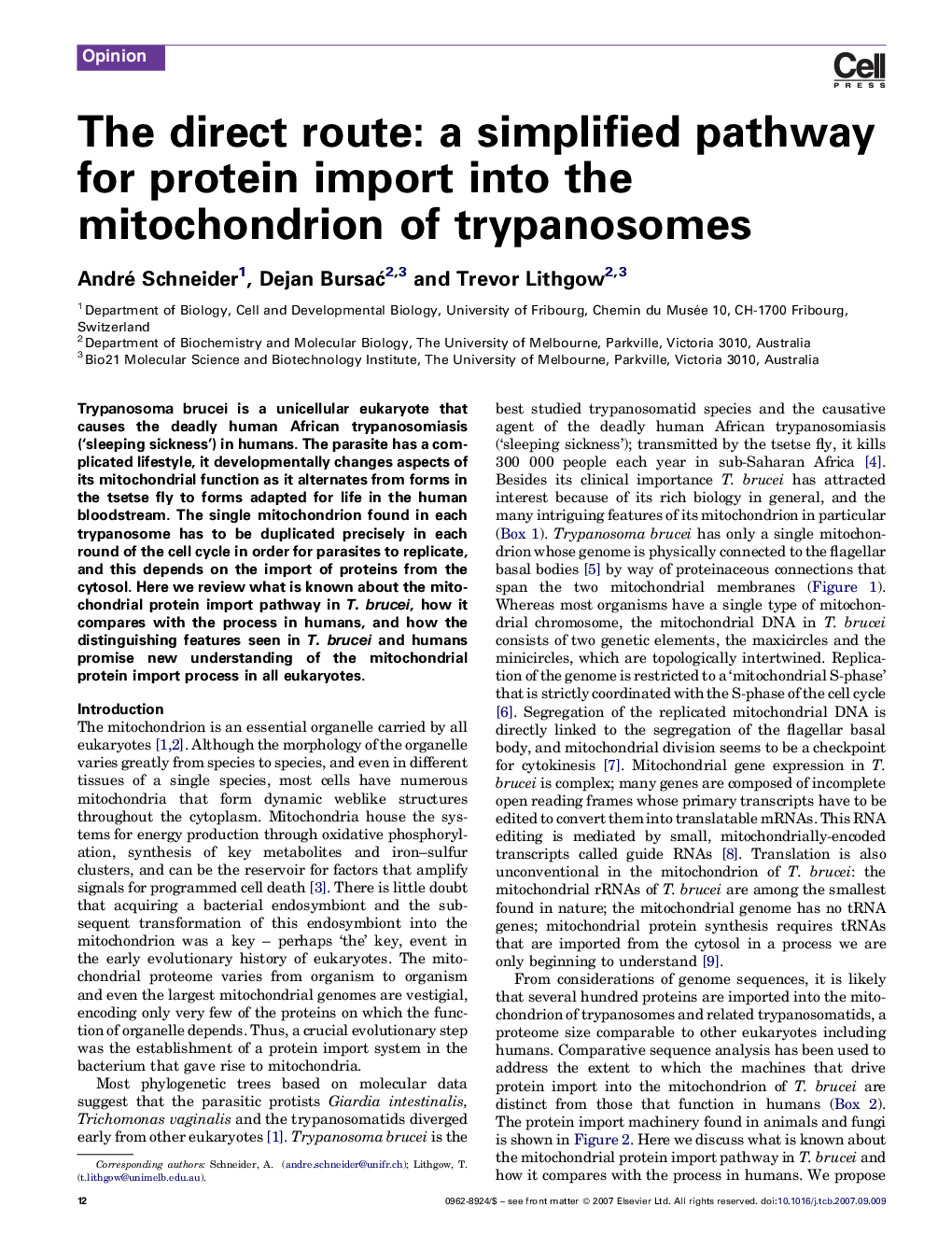| Article ID | Journal | Published Year | Pages | File Type |
|---|---|---|---|---|
| 2204939 | Trends in Cell Biology | 2008 | 7 Pages |
Trypanosoma brucei is a unicellular eukaryote that causes the deadly human African trypanosomiasis (‘sleeping sickness’) in humans. The parasite has a complicated lifestyle, it developmentally changes aspects of its mitochondrial function as it alternates from forms in the tsetse fly to forms adapted for life in the human bloodstream. The single mitochondrion found in each trypanosome has to be duplicated precisely in each round of the cell cycle in order for parasites to replicate, and this depends on the import of proteins from the cytosol. Here we review what is known about the mitochondrial protein import pathway in T. brucei, how it compares with the process in humans, and how the distinguishing features seen in T. brucei and humans promise new understanding of the mitochondrial protein import process in all eukaryotes.
